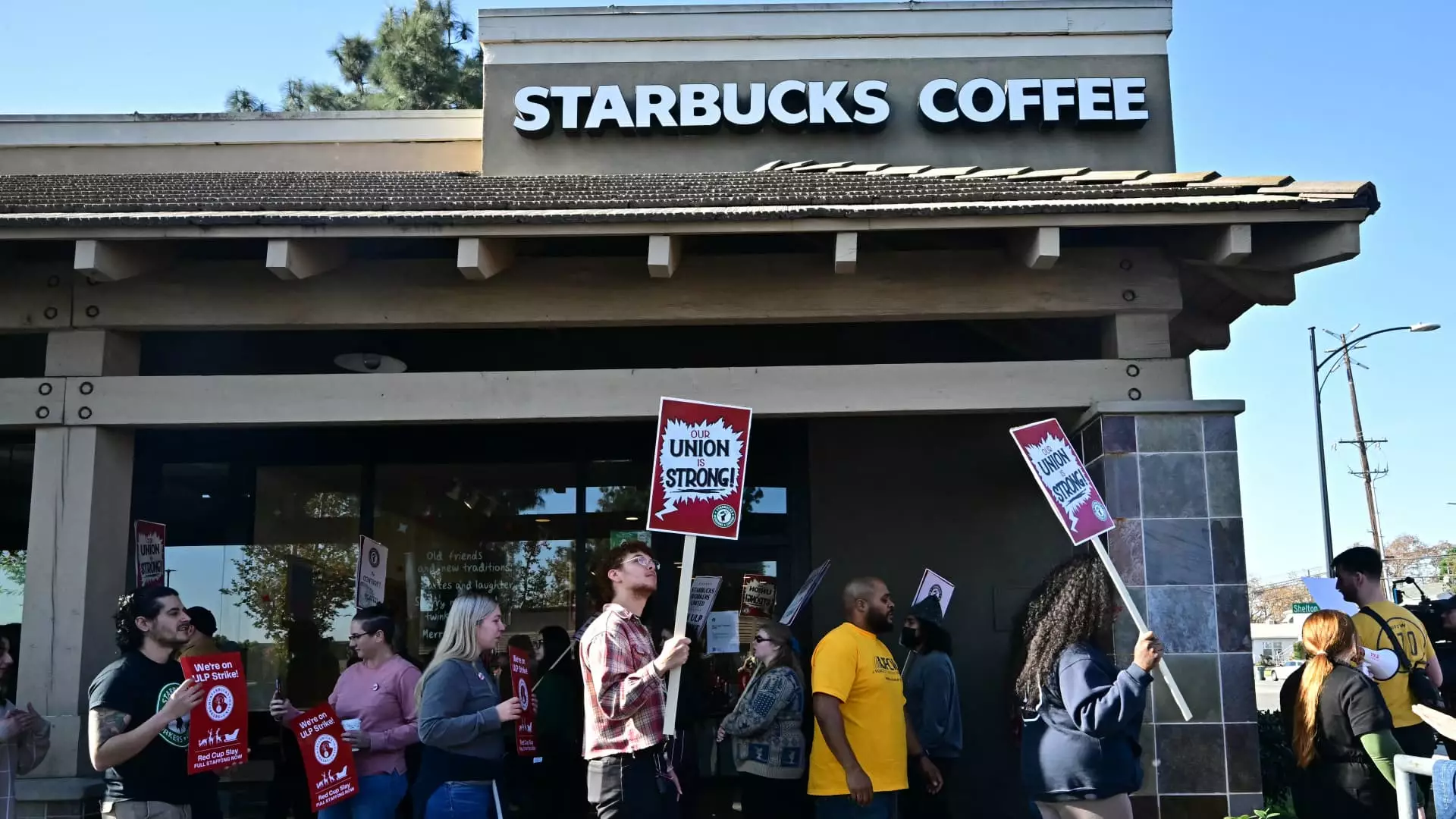As the holiday season approaches, approximately 5,000 Starbucks employees across more than 300 stores in 45 states have initiated a significant strike, reflecting growing tensions within the company. Although this strike constitutes only around 3% of Starbucks locations nationwide, its scale is noteworthy, particularly as it follows a prior strike that began in three separate cities just a week earlier. This labor action, organized by the Service Employees International Union and Starbucks Workers United, aims to spotlight numerous alleged unfair labor practices and highlight the stalled negotiations over a new contract for the workers involved.
At the heart of the strike lies a bold request for an immediate wage increase for Starbucks workers. Strikers are advocating for a minimum hourly wage hike of 64% and over 77% through the life of a proposed three-year contract. These demands reflect a mounting frustration among baristas who feel undervalued despite their contributions to the company’s success. As Lynne Fox, president of the Workers Union, articulated, the workforce is commanding recognition for their essential role within the organization. ”Baristas know their value,” she stresses, capturing a sentiment that resonates deeply among employees seeking fair recognition and compensation for their labor.
Starbucks’ Position and Response
In response to the strike and the union’s demands, a Starbucks executive has dismissed the proposals as “not sustainable.” They assert that the firm’s existing employee benefits package is competitive, indicating that employees working at least 20 hours weekly earn, on average, $30 per hour when factoring in both wages and benefits. This disconnect between corporate assurances and employees’ demands highlights a rift in perceptions regarding compensation and value within the organization. Sara Kelly, the executive vice president of Starbucks, further emphasized the company’s willingness to resume negotiations, reinforcing a narrative that the union has walked away from meaningful discussions.
The stakes surrounding this labor dispute extend beyond individual locations and workers; they reflect a broader trend of labor unrest within the hospitality and service sectors. As workers demand better pay and acknowledgment of their labor’s importance, this strike could signify a turning point in how companies approach labor relations. Starbucks recently enjoyed a favorable outlook among investors, especially following the hiring of Chipotle’s CEO Brian Niccol, but the stock’s recent decline amid reduced market sentiment poses questions about how effectively the company can navigate these challenges.
Niccol’s previous workplace history, which includes settlements with employees urged by the National Labor Relations Board, adds another layer of complexity to the current situation. His pledge to engage in good faith negotiations may either soothe tensions or reveal deeper divisions between corporate objectives and worker rights.
As the Starbucks strike unfolds, it serves as a critical case study in the ongoing struggle for workers’ rights and fair labor practices in America. The convergence of employee advocacy for better conditions and corporate responses will likely define Starbucks’ operational climate in the months to come. All eyes will be on the outcomes of negotiations as both parties strive to find common ground amid a landscape increasingly marked by demands for equitable treatment in the workplace.


Leave a Reply